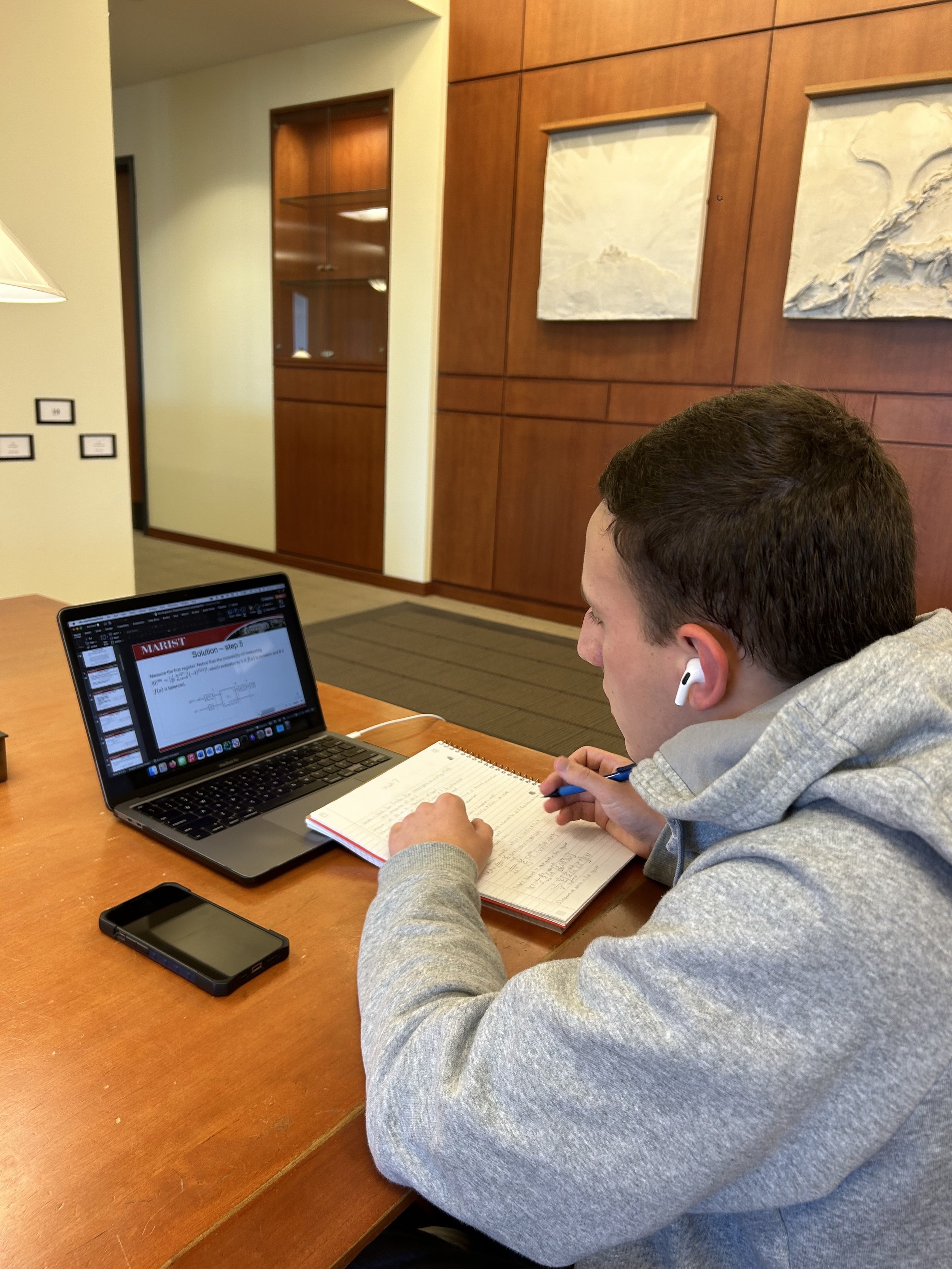Campus-Wide Wi-Fi Upgrades Intended to Improve Coverage and Speed
Josh Seligman ‘24 doing homework in the Marist Library. Credit: Sasha Tuddenham '24
Over the summer, Marist College’s IT Networking and Telecommunications team installed campus-wide Wi-Fi software updates for increased coverage and enhanced speed; however, such updates were unprepared for the demand of thousands of students who descended upon campus in August for the fall 2023 semester.
“With any technology, we need to replace components constantly,” Vice President of Information Technology Michael Caputo said. “Over the summer, we completed a software upgrade, and we could not replicate the amount of devices brought by thousands of students on campus at one time.”
The IT team is addressing the holes exposed in the new service with the system under such demand from students. They are addressing campus coverage by continually rewiring buildings and adding Wi-Fi routers to reduce the amount of Wi-Fi outages. Still, the upgrade was primarily meant to improve system stability, which the IT team believes has succeeded.
There is generally one Wi-Fi access point per apartment and one per townhouse floor. With around 1,300 access points already on campus, the IT department is working with student activities and the Student Government Association (SGA) to see where outdoor Wi-Fi connections have been requested. They are now looking into adding network connections at the Cornell Boathouse, on the campus green and between the Allied Health and Steel Plant buildings.
Caputo believes communicating with students is essential because it ensures that students know the IT department is working to solve the network problems. So far this semester, Director of Networking and Telecommunications Jeff Obrizok sent out an email about a wireless network upgrade taking place on Sept. 17. The following week, on Sept. 25, Obrizok sent out another email about a Wi-Fi outage ranging from the North End housing to the library.
With each Wi-Fi outage, students are exasperated by the continuous struggle to address connectivity.
For Laratee VanNieuwenhuyze ‘24, it is like a guessing game to see which Wi-Fi network will work at any given time. “We keep getting emails about how the Wi-Fi networks are being updated and running better, but they’re not if I can’t even stay on a phone call,” said VanNieuwenhuyze.
Many of the connectivity issues can be solved by the on-campus IT staff, but for something more extensive like the Wi-Fi outage in North End, the department will turn to Cisco, Marist’s networking company. Cisco is currently investigating the cause of the North End Wi-Fi outage and will send a report to the IT team once the root of the problem is pinpointed.
“Technology is not perfect, and systems change, or codes change, and with thousands of devices connecting every day, things are bound to happen,” Caputo said. “We have systems in place that monitor Wi-Fi, and we can look at the log to know the exact time the system went down.”
Whoever is closest to the region on campus of the Wi-Fi outage is sent to address the issue, including student employees. Student employees are trained to repair network connections because they often hear about a Wi-Fi issue from their friends before the rest of the IT department is notified.
The department depends on students to report network outages. They respond to individuals concerned about lack of connectivity in their dorm rooms but also will investigate whether those are symptoms of a more significant connectivity issue. Any calls or emails to the Help Desk are documented and are followed up on a few weeks later to ensure the repairs made were long-lasting.
“We understand it was rocky at the start of the semester,” said Obrizok. “It is at the top of our list that the student experience is the best it can be.”
